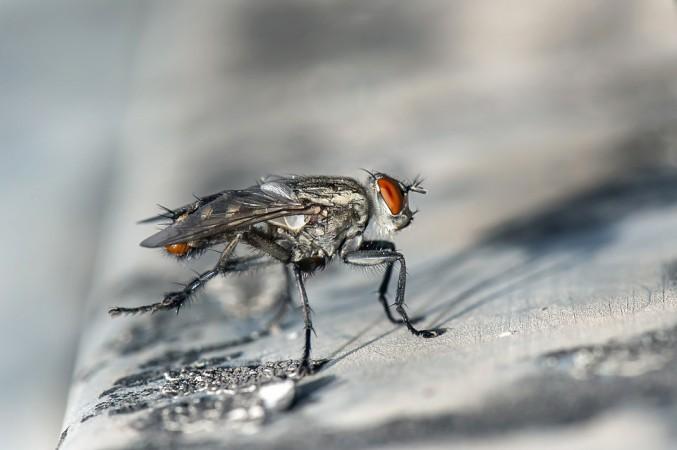
Do you often brush away flies from your food thinking they are mere insects that can do little harm? A recent study suggests they are far more dangerous than we thought. In fact, it's better to throw away food contaminated by flies.
Researchers at the Penn State Eberly College of Science in the United States have found that common houseflies carry salmonella, e-coli and even bacteria that can lead to stomach ulcers and deadly sepsis.
Researchers studied 116 types of flies from three continents in urban, rural, and natural settings, and found that in some cases they carried hundreds of different species of bacteria. It was also noted that flies in urban areas carry more bacteria than in the countryside.
Dr Donald Bryant, Professor of Biotechnology at Penn State University, told the Telegraph: "People had some notion that there were pathogens that were carried by flies but had no idea of the extent to which this is true and the extent to which they are transferred."
DNA sequencing techniques were used to study the microbes found in and on the bodies of the houseflies and the blowflies.
Houseflies are known for their bad hygiene: They are found near decaying food, faecal matter and animal corpses. On the other hand, blowflies are the most common flies and are found near dead animals, slaughterhouses, rubbish dumps and similar such places.
The study found that houseflies, which are present everywhere around the world, harbour 351 types of bacteria, while and blowflies, which are found in warmer climates, carry 316 types.
The research team even investigated the microbes on individual body parts of the flies, including their legs and wings. The study indicated that the flies probably pick up bacteria from faeces and decaying organic matter, and use them to nurture their young ones.
"We believe that this [study] may show a mechanism for pathogen transmission that has been overlooked by public health officials, and flies may contribute to the rapid transmission of pathogens in outbreak situations," Donald Bryant of Penn State University told the BBC.
The study was published in the journal Scientific Reports.









